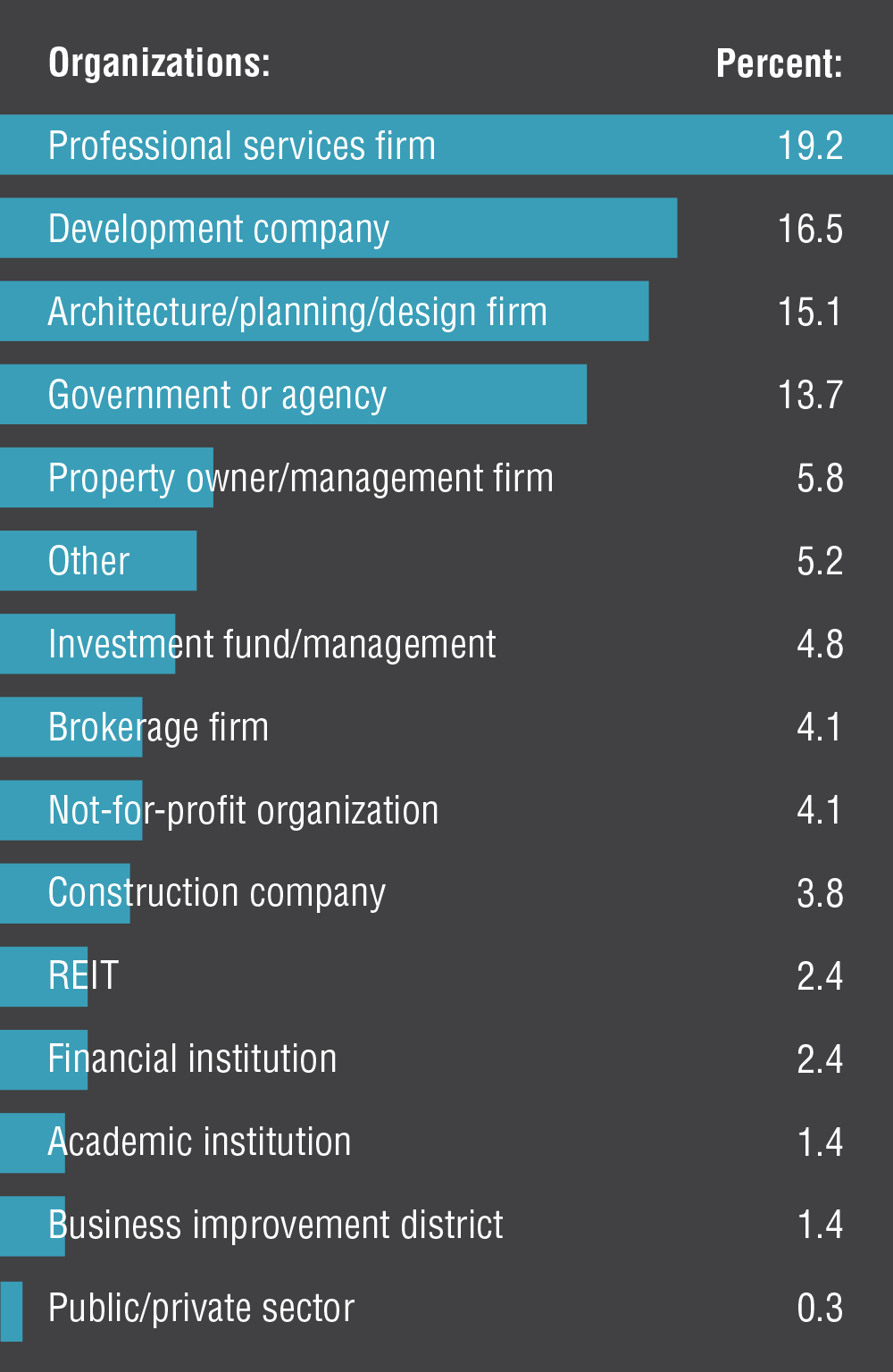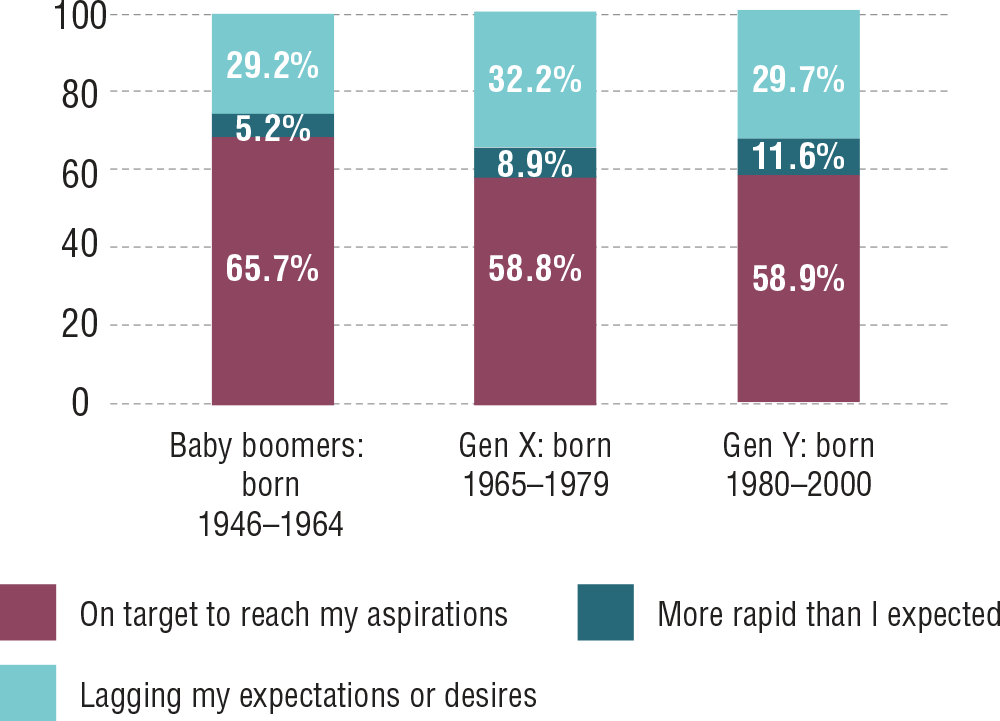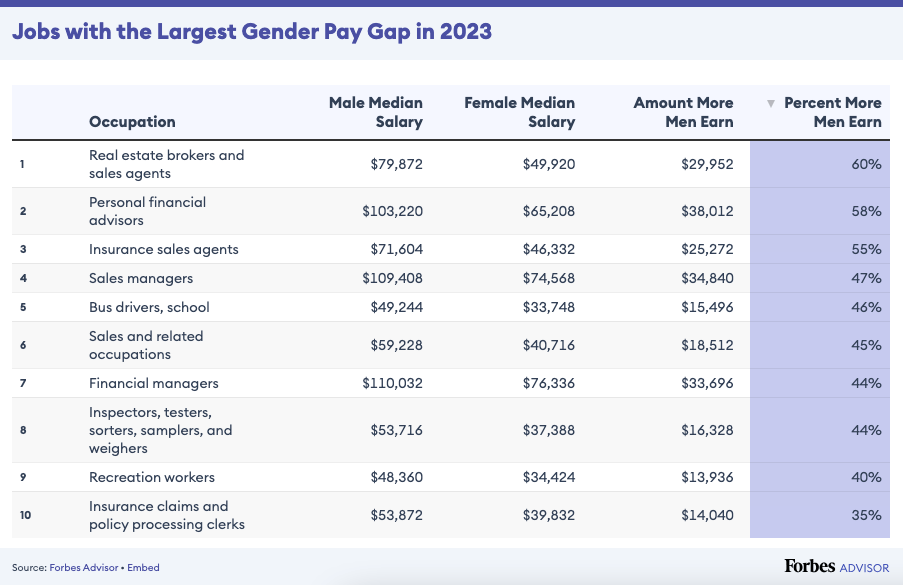[Note: This post was originally published in 2018, but updated with current statistics and ideas to reflect the landscape of real estate in 2023.]
Women are dominating the real estate industry. At least, that’s according to the most recent NAR statistics. And yet, women continue to face many of the same challenges as their female peers in other industries.
While both men and women in real estate face obstacles to advancement, women must contend with unique challenges as well as barriers. Some of those obstacles are the result of workplace inequality, while others are a reflection of larger, socio-economic pressures.
Given the increasing trend of females in real estate, employers would do well to encourage the advancement of women in their organizations.
In this article, you’ll learn about the most critical challenges to advancing women in real estate – but first, let’s look at the humble origins of women in the real estate industry.
Facts About Women In Real Estate
When the National Association of Realtors was founded in 1908, there were zero female members on the board.

NAR Board of Directors 1909
Although NAR’s first female member joined in 1910, women were restricted from real estate boards until the 1950s. With the formation of the Women’s Council of Realtors® in 1938, female real estate professionals finally had a board of their own.
As America’s largest trade association, NAR has grown significantly since its founding, expanding its membership to Canada as well. In addition to including women in leadership roles, NAR membership has attracted women in increasing numbers as agents and brokers.
According to the latest NAR reporting:
- 63% of full-time agents are female
- 69% of part-time agents are female
- 66% of sales agent licensees are women
- 56% of licensed brokers are women
Female membership in NAR has grown from nothing to a majority, with seven women elected as NAR Presidents. The increase in women reflects a larger, national trend of female entrepreneurship. Women-owned businesses increased 68% between 1997- 2014. But that’s not all that’s changing.
Digital home shoppers are increasingly single women. 18% of the home buyers market in 2017 were single females, while single men comprised only 7%.
6 Most Common Challenges For Women In Real Estate
While the barriers to obtaining a real estate license are the same, men and women in real estate experience very different challenges.
Despite the apparent progress women in real estate have made, females face unique career challenges in contrast to men.
Real estate is demanding and often requires a great deal of personal sacrifice. Late nights, long hours, and weekends are all part of the gig, especially in the early stages of your career.
Single women, married women, single mothers, and divorcees who choose a career in real estate face unique challenges to their professional growth. Often, balancing work and family obligations
In this article, we’ve identified 6 of the most common challenges women are currently facing.
CHALLENGE #1) Pay Inequity
A new report from Forbes shows real estate brokers and sales agents having some of the largest inequity among all industries. Why is the gap so large in real estate?
In a report on gender equity published in 2017 Professor Rebecca Cassells noted that the wage gap was particularly evident in brokerages where men were scarce:
“Not only do female-dominated organizations tend to be lower paid, but this analysis shows that in workplaces with heavily female-dominated management teams there are large gender pay gaps in favor of men…It seems that where the men are few, they are more highly valued.”
CHALLENGE #2) Limited Leadership Roles
One of the key reasons for a lack of pay equity is the lack of leadership roles for women. While there are a few, you’d be hard-pressed to find brokerages with females in executive roles.

Only 14% of ULI’s membership are in CEO roles, even though they are 25% of its entire membership.
CHALLENGE #3) Career Advancement
Career growth and development is yet another challenge for women in real estate.

Even when they work harder, put in more hours, and sell more, women are often overlooked for C-level and executive roles in real estate.
Opportunities for advancement can be limited for women working in real estate. In many cases, ownership of the firm is passed from father to son. As a result, women are more likely to advance their careers by changing employers.
ULI members under the age of 32 reported greater satisfaction with the pace of their career than senior agents. In other words, women in real estate tend to progress quickly during the early stages of their careers. Their career, however, loses momentum as they get older, and the wage gap increases as they rise to management and executive roles.
CHALLENGE #4) Gender Discrimination
In a workplace culture dominated by men, women experience discrimination in a number of ways, some subtle, others more overt.
Many larger brokerages are still male-dominated and breaking into the old boys’ club is more difficult for women than men.
“As a full-time stay at home mother before becoming a realtor I had to work harder than most in order to be taken seriously.” – Star Grieff, Lyons Sullivan Realty
An archaic work culture still survives in many brokerages which often conflicts with a woman’s priorities. Women who choose to seek a healthier work/life balance, for instance, often face criticism from both men and women. They can be overlooked for advancement for choosing to prioritize time with family, or taking extended parental leave.
A study by ULI suggests that women are more successful in smaller firms. In fact, women are more likely to leave a large brokerage and start their own. In such organizations, women are instrumental in shaping a more inclusive culture as leaders.
Changing the culture in established brokerages is necessary in order to effect meaningful change in roles and opportunities for women.
CHALLENGE #5) Lack of Mentorship
Finding a mentor can also be a challenge for women seeking career development in real estate. Scheduling conflicts can make it difficult to commit to extra training and coaching outside of business hours.
A mentor can provide crucial guidance and accountability. Most top performers credit their success in large part to a mentor early in their career.
Colorado Realtor® Ashley Colgate was exposed to real estate early through her stepfather. Between her volunteer roles, family obligations, and her career, however, Ashley was hard-pressed to find the professional guidance she craved.
Says Ashley:
“2 years ago my brother and I got our license. We encouraged each other but his experience was totally different. He was (working) in an office environment (while) I was juggling family commitments, so (I) dived in and found my way on my own.”
Ashley advises other female agents to join a service like Parkbench.com, which mentors agents in the process of building a referral-based business in their chosen farm. As she explains:
“Parkbench is my mentoring. The time blocking, goal setting, accountability, and weekly scheduled calls give me the support I need.”
Realtor® Ashley Colgate interviews local business owners and features them on her Parkbench neighborhood website to promote business in her community. Parkbench provides her with valuable mentoring to help her build relationships in her farm.
CHALLENGE #6) Personal Safety
Late-night showings, open houses in questionable neighborhoods, inappropriate advances from male clients – these are real concerns for women in real estate.
Women are often required to take extra precautions when meeting with clients alone, particularly outside of business hours. While safety varies from one neighborhood to the next, most women can identify with the need to be cognizant of the potential risks when meeting with men.
As entrepreneurs, women in real estate are also vulnerable to reprisals from unhappy or troubled male clients. Stalking, unwelcome advances, and even unwanted communications by text or email are also valid concerns for women in real estate
5 Key Recommendations For Advancing Women In Real Estate
Leading your team members to success means being mindful of the challenges they face and finding solutions to overcome them.
Are you a team leader, manager, or CEO who would like to recruit, retain and develop more female employees? Follow the ULI recommendations below.
#1) Create a culture that promotes equity in an open environment.
Leaders in real estate need to take a decisive role in shaping a work culture of inclusivity. Take the initiative to explicitly state your values, and hold others to the same standard.
General Silveria of the US Air Force was informed that four of his cadets had been harassed with racial slurs. He chose to address the issue in person to all his cadets by explicitly stating his values and expectations for the corp.
When subordinates hear such powerful words from the leaders in their organization, it sets a strong precedent.
Establish an open-door policy that welcomes and encourages feedback. Write down your values, include them as part of your company policies and ensure that all management is held accountable.
#2) Recruit based on talent to avoid gender discrimination.
One way to avoid gender bias in the recruiting stage is to remove names from the application. You can also expressly state that your firm is an equal-opportunity employer.
#3) Establish mentorship for females in your organization as a key priority.
Pair senior members of your team with junior/entry-level agents. Make it a standard practice in your firm for all your agents to receive a period of mentorship. Take an active leadership role and become a mentor to your team through regular coaching.
#4) Invest in continued training.
Provide training resources for all employees. Seek out seminars, webinars, and industry events that will motivate and empower team members.
#5) Drive career development through diverse work assignments.
Open houses, listing presentations, sales negotiations, team meetings and prospecting are just a few of the aspects agents must master. Encourage women in your organization to learn all aspects of real estate by assigning diverse tasks. Regular coaching and assessment will help you determine which assignments will push your employees to grow and develop.
Conclusion
The real estate market is changing for both home shoppers and the realty professionals who serve them.
Women are increasingly buying homes, and often play a crucial role in the home-buying process. They may initiate the search for an agent or home, dictate the search criteria, and provide the initial down payment.
Team leaders, management, and CEOs should strive to be informed so they can empower female members of their organizations to succeed.
By helping the female agents on your team to succeed, you can build a greater share of the millennial home buyer market. More importantly, you’ll strengthen your organization by encouraging a merit-based culture and challenging gender bias.







